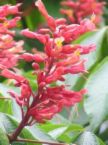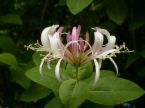
|
The Evolution of Feminist Heroine in Modern Drama |
|
The Diverse World of K.K. Dyson |
  
The Diverse World of Ketaki Kushari Dyson An Introduction: Dr.Ketaki Kushari Dyson (1940- ) is an Indian-born bilingual writer of the Diaspora and a brilliant scholar of Ketaki Kushari Dyson's research works include her doctoral thesis, ‘A Various Universe’
(Oxford), ‘In Your Blossoming Flower-Garden –Rabindranath Tagore and Victoria
Ocampo’ (Sahitya Akademi), and another
research project ‘Ranger Rabindranath’ (Ananda), which are not only scholarly but also innovative in their respective
fields. She has also translated some of Tagore’s finest poems into English with an elaborate introduction as ‘I
Won’t Let You Go’ (Bloodaxe) and ‘Selected Poems of Buddhadeva Bose’ (Oxford).The Indian Diaspora
literature is gaining ground with the growing recognition of Nirad C
Chaudhuri, V.S.Naipaul, Anita & Kiran Desai, Vikram Seth, Amitava Ghosh, Jhumpa Lahiri et al. Dyson has published three volumes of brilliant Bengali essays covering a wide range of literary and cultural topics.
They are ‘Shikar Bakor’ (Ananda), ‘Bhabanar Bhaskarya’ (Dey’s) and ‘Chalanta Nirman’
(Dey’s). Her English essays have appeared in various journals, but yet to be published together. In sharp analysis,
observation and style she is at par with the best essayists. Her three plays, ‘Night’s Sunlight’, ‘Mozart Chocolate(s)’, and ‘Suparnorekha’
have been published in English and Bengali and have been staged. She has explored the issues of environmental concern, women’s
status and satirized the unsubstantial literary schools of post-modernism and post-colonialism. Dyson’s fictional characters are unique: They are members of Diaspora of various nationalities - Irish, English, Algerian, Jewish, Canadian
etc - living in In her own words (Quoted from her website): “I
think that a diversity of genres and a vigorous bi-culturalism and bilingualism are my hallmarks as a writer, and it is my
aim to maintain this quality to the best of my ability. One does not get my true profile if one does not keep track of the
many different things I do. I not only write and publish in two languages, Bengali and English, but also in several genres
encompassing the creative and research-based modes. I have never severed my links with the literary life of my native She has received the literary award Ananda Puraskar twice: for her researched-based
Bengali novel ‘Rabindranath O Victoria Ocampor Sandhaney’ and a collaborated research
project ‘Ranger Rabindranath’. For more information on Dr.Dyson, please visit her website: www.ketaki.dyson.dial.pipex.com My Ongoing Research Paper: My acquaintance with K.K.Dyson's works began with her essays ‘Shikar Bakor’ and ‘Bhabnar
Bhaskarya’.Then I discovered her website and read her Bengali fictions. I realized that all her works are the creation
of a poet. So, understanding her poetry is essential to the appreciation of her works. I give here a brief outline of my paper which focuses on the multiculturalism and other issues in K.K.Dyson's
volumes of English poetry such as, ‘Sapwood’,(Writers’ Workshop) ‘Spaces I Inhabit’ (Navana),
‘In That Sense You Touched It’ (Akademi) and ‘Memories of Argentina and Other Poems’ (Virgilio), ‘Manipur-Memories’,
and her only published play is available in English as ‘Night’s Sunlight’ which deserve close study for
the cosmopolitanism, deep human values and innovative techniques. Dyson can be beautifully nostalgic without any sense of regret. She believes in the contexts of happenings
and the connections between apparently discrete events which happened but are hidden from view. She explores the link between
the poet and the events which took place in the past which she was either unaware of or dimly aware. She is concerned how
the obscure past events shaped her through the knowledge of various details or through the ignorance of other details. In
a sense all her writings deal with glocal problems.
And her cosmopolitanism has been fostered by her deeper understanding of Shakespeare and Tagore. To balance the high-tech
onslaught on communal harmony more researches should be done in multi-cultural poetry. Her poetry and prose works show an eye for details and an acute power of observation. She can equally
deal with light-hearted and serious subjects. Often her poems are sparked off by incidents of daily life and she looks back
to her past experience. She is equally at home with description of Nature as well as with themes of inclusionality and the
halves of normality. Innovation and scholarship are the hallmarks of K.K.Dyson’s works. Her poetry is her immediate
reactions to everyday life – the serious as well as the small things of everyday life. Serious poetry is seldom popular.
Like art film it has a small niche audience. The innovative narratives of James Joyce and Virginia Woolf do not have the stuff
of best-sellers. In a society where technology rules the roost, even good poetry finds few publishers. So, the worth of a
poet cannot be judged by the printing history. Her love of nature is palpable. In her sublimation of the trivial she reminds us of Charles Lamb (sans
his antiquated style) and William Wordsworth (without his pantheism); in plumbing the depth of human psyche she carries forward
the trend set by Woolf and Joyce. She traces the roots of violence in the traumatic experiences of childhood. “In childhood’s innocence is the honey of regeneration ..those unlucky kids who see too much, know too much too soon pay a price… for none of us are islands. The violated becomes violators.” She combines in her works the best of the Eastern and Western cultures. Tagore and Shakespeare
have mingled in her as naturally as milk and honey. She is steeped in Bengali
culture, especially Tagorean, yet she has relished Shakespeare and other German, French and Spanish authors in the original
language with equal gusto. A polyglot, her knowledge of six languages helped her research work and easy interactions with
members of Diaspora from She is serious about the issues of exploitation, environment, feminism, communal violence and
terrorism, yet she has the softest corner for nature and the various Diaspora in
Finally, it is a thrilling experience to do research on a living author because you can communicate with her to check
facts and seek explanations. Often out of print and unpublished writings may be received from the author. Her five (apart from six volumes in Bengali) volumes of English poetry are best classified thematically.
Her philosophy of life remains consistent during the four and a half decades of her writing
career. ------------------------------------------------------------- Your views and opinions will take this site to a new height. Therefore, students, scholars and lovers of literature are encouraged to interact with the author. E-mail:
swkb50@sify.com
|
|
